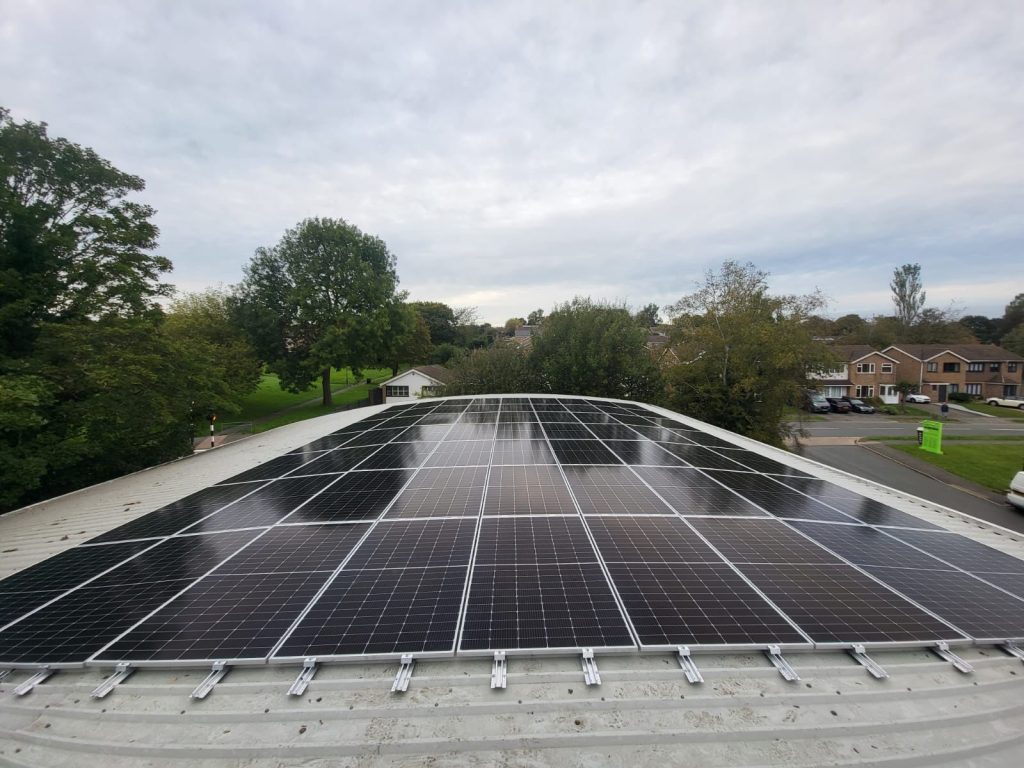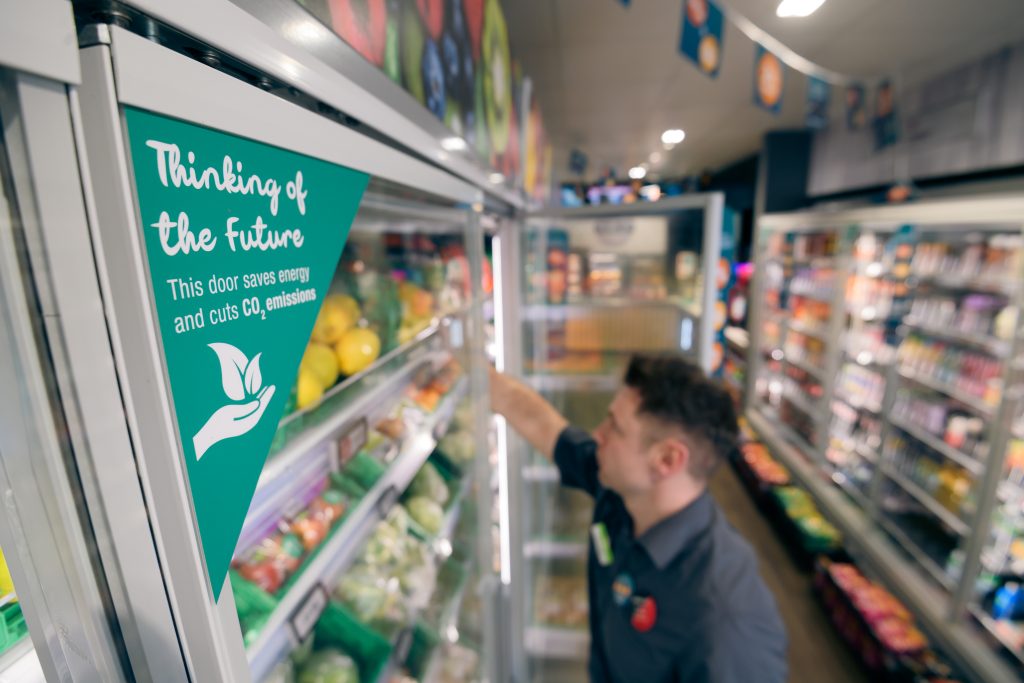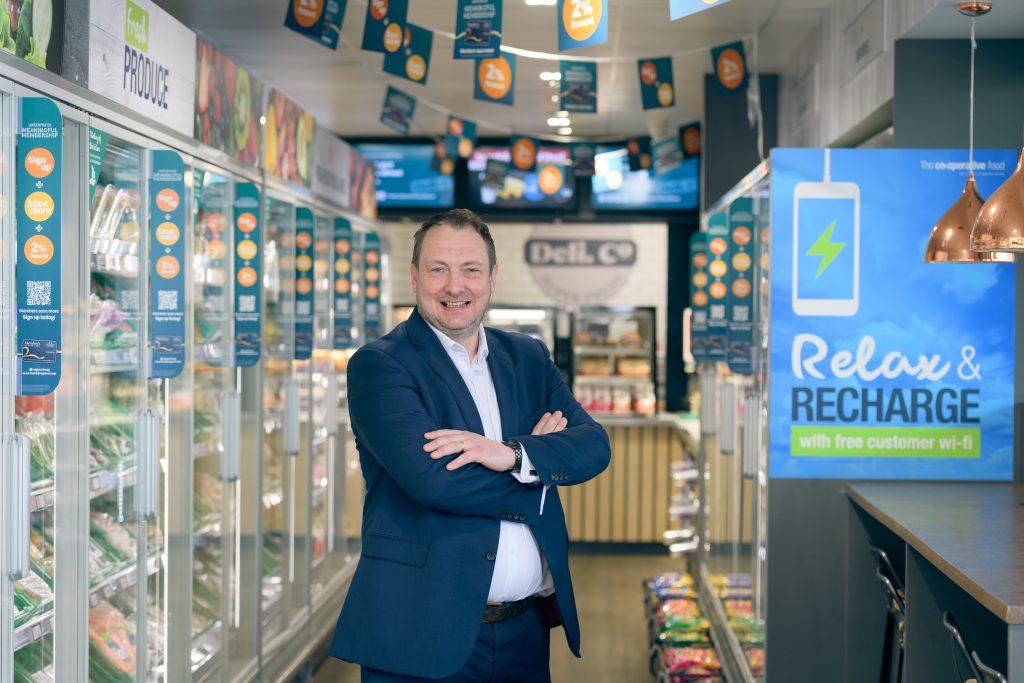Heart of England Co-op is to follow up last year’s £2.36m spend on eco-friendly initiatives with the announcement of a further £1.75m worth of upgrades.
The work, which will be carried out in 2026, will include a second phase of refrigeration upgrades, solar installations and energy-saving lighting.
Chief executive Ali Kurji says the Coventry-based society is proud to be blazing a green trail across Warwickshire, Northamptonshire and parts of South Leicestershire.
“Investing more than £2m in sustainability projects last year alone shows where our priorities lie,” he said. “As Warwickshire’s biggest independent retailer, we want to lead by example in putting the planet first.
“The environment is a key factor to us in every development we take on and our new and existing food stores are becoming progressively greener. We keep a close eye on any technological advances which could help us to improve our carbon footprint at both our stores and funeral homes.”
He added: “Our ultimate ambition is to get to net zero and the tremendous investments we are making show just how serious we are about that aim.”
New refrigeration equipment at the society’s food stores accounts for the biggest eco spend, amounting to more than £1.6m.

John Bridges, head of property services, says the new systems come with significantly lower global warming potential (GWP) gases and have so far been installed in 10 food branches.
“On our older systems the GWP rating is 3000 C02/EQ per KG of refrigerant whereas on our new systems that figure is down to 148 CO2/EQ. That’s a reduction factor of x20 in the event of a spill. The use of lower GWP systems helps to reduce the level of greenhouse gases. With the new refrigeration cases being doored and designed to run efficiently with the new equipment, we have also managed to reduce the refrigerant holding capacity by 50%.
Related: Co-op Foundation issues funds to food growers who avoid damaging peatlands
“Another major benefit of the advanced refrigeration systems is that they typically use 30-35 per cent less electricity. This is primarily down to them having high quality fitted doors, but also because of the more sophisticated way in which they operate.”
Switching to solar power has also significantly reduced energy use at 22 food and funeral locations. More than £500,000 has been invested so far and the results are impressive.
The largest installation took place at Whittle House, the Heart of England Co-op’s administrative centre in Courtaulds Way, Coventry. The solar panels cost £94,502 including fitting and are already earning their keep.

Last summer 55% of electricity usage at the headquarters came from solar power, slashing energy bills by an average of £2,000 a month. Some food stores and funeral homes were able to run completely off grid at times, the co-op adds.
The system provides live feedback on the difference the solar panels are making. It even specifies the number of trees that would need to be planted to generate the same amount of energy from fossil fuelled power plants.
The society has also added seven more charging points in the car park of its Coventry HQ, bringing the total to 16. All the chargers take power from the new solar panels on the roof when there is sufficient light.
“The results have been remarkable,” said Bridges. “At times we’ve had five or six cars being charged at the same time, all harnessing energy from our solar panels.”
The co-op has also been systematically removing gas boilers from its buildings and replacing them with greener alternatives. To date more than £50,000 has been spent on the work at eight sites. Discussions are taking place to source a suitable heat pump for use in the funeral homes.
Switching to LED lighting is another area where huge savings are being made. The society’s food stores are all now equipped with LED lights cutting energy consumption by 64.8%. Work is continuing to change the lighting system across the society’s funeral division.
The food store in Hinckley boasts a smart lighting system which automatically adapts levels to whatever is required. Lighting levels are significantly reduced in the aisles when no customers are present and return to full brightness the moment a shopper is detected.
The new £3m Bishop’s Itchington store which was officially opened on July 20 has the most sophisticated lighting of all 37 food outlets.
Related: Heart of England Co-op promotes food chief Steve Browne to CEO
“A new feature is solar gain detection,” added Bridges, “which means when sunlight floods into the store the lights will automatically dim. We aim to include this in all our new stores from now on.
“We’re constantly exploring and deploying the latest green technology, but not losing sight of even the simplest of things we can do. We’ve also installed a water butt at Bishop’s Itchington which will be another first for the food operation. It will collect rainwater to be used on our outdoor range of plants and shrubs.”
In addition to all the engineering advancements, the society launched a hearts and minds campaign in March 2023 around the use of energy. Area managers were set targets to achieve, with staff able to monitor monthly consumption levels.
“We have an energy tracking tool which has been made more user-friendly. We encourage our colleagues to use less power and they can track the results against the set targets. We believe that this is more effective than traditional methods such as putting up posters in the hope that people will read them and do the right thing.”

Steve Browne, general manager of Heart of England’s food division, is buoyed by the scale and benefits of the sustainability projects.
“Green measures are not just good for the environment,” he said. “They improve our efficiency too. We have made other major investments which do not strictly come under our green spend category, but which also bring important benefits as far as sustainability goes.
“A good example of this is our £1.45m investment in electronic shelf labelling which means staff no longer have to print out thousands of paper labels. All our stores have moved to the new system and that is a massive saving on ink and paper.
“Product sourcing is also an important part of our sustainability. Increasing numbers of items come in recyclable materials. At some sites and with certain foods customers can even bring in their own containers and weigh out the exact amounts they need.”
Mr Browne also points to the society’s link-up with the FareShare charity as having had positive spin-off gains for the environment.
“Statistics released last year showed that over a year our surplus food provided 140,000 meals for people struggling to make ends meet. On top of that, it prevented a lot of food from ending up at a waste disposal centre. That in turn prevented 92.8 tonnes of CO2 emissions. This year our surplus will be handled through a new co-op distribution arrangement which will continue to help the environment.”
The society’s Coventry roots go back to 1832 and it employs more than 700 people in the food and funeral sectors.
In recent years the organisation has had a rolling programme of expanding and improving its portfolio. Capital expenditure during 2023 totalled £8.79m and the projected figure for this year is slightly higher.
The headline development this year will be the opening of a flagship food store together with six rental units at Glenvale Park in Wellingborough. It will be the society’s 38th food store and is being fitted out with an array of eco-friendly features.
One of the rental units will be taken up by a Bewiched coffee shop, with other businesses to be announced before an unveiling ceremony due to take place in November. The £6.1m development will serve a new community consisting of 3,000 homes.
“Proportionate to the size of our society, we’re proud to be punching well above our weight in terms of investment and ambition,” said Mr Browne.

